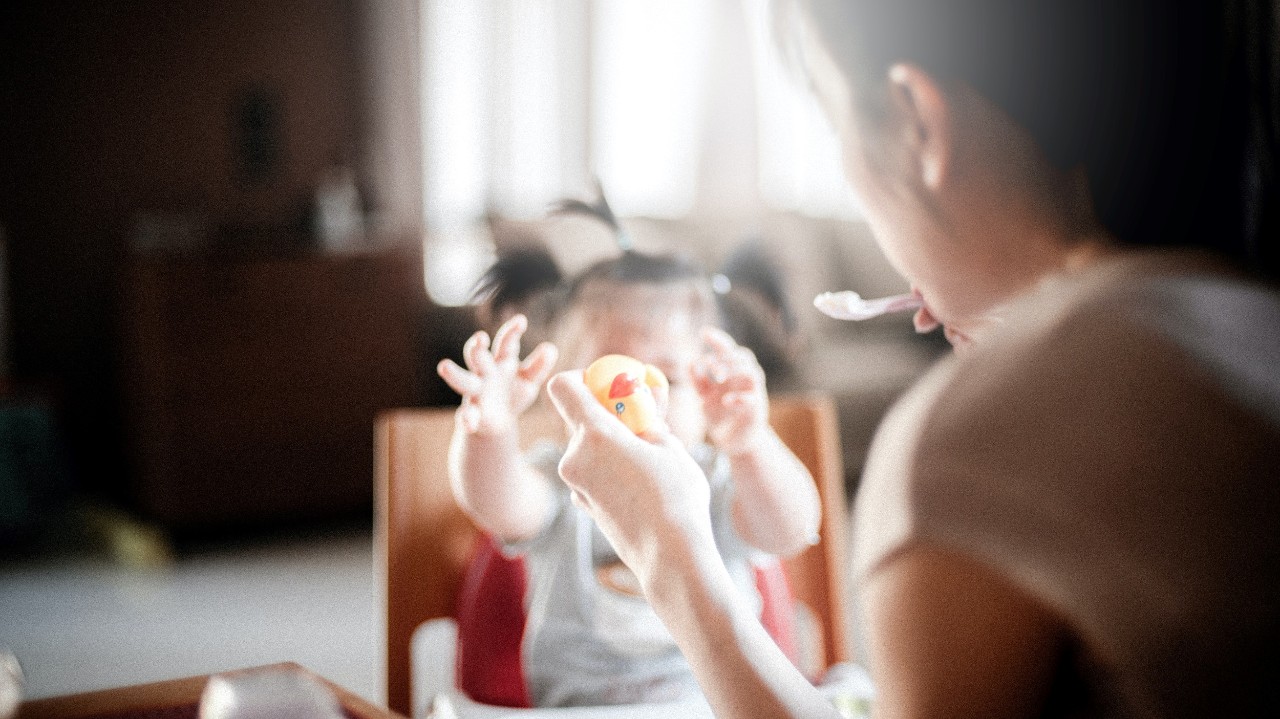
We hear from Dr Magdeline Voon in the August edition of Cru’s “Tuesday Talks” series in this first mum-centric session. With over 20 years of counseling experience, Dr Magdeline shares with us some perspectives on motherhood, the pressure of balancing work, family and managing the home in this webinar.
“I remember being very emotional after giving birth to my first child. I really wanted to give my best, but was just feeling so miserable,” Dr Magdeline began.*
“I had all these questions—how do I balance all my roles as a mother, a wife, employee? Whose needs should I be focusing on? What about my needs, will anyone help me?”
These sentiments were echoed by one of the webinar participants, Mrs Selvi Krishnan. “It was difficult trying to draw the line between giving a 100 percent to the family and finding the space and time for my own growth as a person.”
*Please note that this does not cover postpartum or postnatal depression (find out more here), which could require professional support and treatment. If you think you may be experiencing this, please seek professional help. (Postpartum support international resource.)

Finding that this was a common struggle faced by many mothers, led Dr Magdeline to her work in discovering the root of the issue. She pinpointed the main cause of this being guilt.
Sharing a survey done by Focus on the Family of 800 mothers across various ages, Dr Magdeline highlighted that 4 in 5 mothers experience guilt. The survey further found that 50 percent of participants compared themselves with other mothers, and 70 percent said that they were affected by what their family and friends thought about how they fared as a mother.
Feeling unable to meet unsaid expectations or perceptions of a ‘perfect mother’, “we experience so much guilt and anxiety, because we constantly worry about falling short,” Dr Magdeline pointed out.
But is there a perfect mother? What expectations have mothers bought into that have caused such guilt and pressure? What is the right perception of motherhood?
Watch the full Tuesday Talk session below
Debunking the biggest myth
We chase an idealised vision of a balanced life which consists of having everything under control. You are doing well in your job, the house is in order, your family is loving, the children are well-behaved, and dinner is somehow always on the table at 7pm.
“We think that once we achieve this balance, it means that we are efficient, we will experience happiness and not be subject to criticism,” Dr Magdeline said.
However, this simply is not an accurate reflection of life. “The truth is: your state of balance will change all the time. It is impossible to do everything well all the time, and if you try to do that—that’s when you enter into a constant state of pressure,” Dr Magdeline described.
“A contented and happy life is not determined by how well-balanced your life is.” Instead, she suggested three things that a happy life is defined by instead:
Dr Magdeline explained, “It starts with a healthy self-image—because in life, we will receive criticism. A healthy self-image helps us bounce back from criticism, instead of falling into self-doubt and feeling defeated.”
“Now that we understand our goal is not about achieving that unattainable balance, we need to find our purpose. This will inform our goals, as well as what we want and choose to invest in. Rather than striving for perfection as a mother, the question we need to ask ourselves is—how can we continue to grow as a person through different seasons of motherhood?”

Growing through vs. going through motherhood
1. Find your purpose
Dr Magdeline shared her personal struggle as a young mother, where she felt like she needed to juggle being the perfect mother, wife and counsellor.
“Even though I could do these different tasks efficiently, I felt so much pressure. This showed up in my behaviour. I remember one time when I was picking up my son with my two other kids in the car. There was a line of parents in cars waiting for their children. While waiting for my son, my two kids were constantly going ‘Mummy this’, ‘Mummy that’, then another car horned at me.”
“It was something small, but I was already feeling the pressure build up inside and I blew up,” she recalled.
Through this, Dr Magdeline realised that it was not about being perfect, but about being purposeful. This started her questioning, ‘What do I really want?’ and seeking God, ‘What do You really want me to be doing in this season?’
She detailed four advantages of knowing your purpose:
Dr Magdeline continued, “Knowing your personal purpose ignites a hope that life has meaning beyond yourself, and that you are here for God’s purpose. I felt so reassured when God told me that there isn’t a perfect mother or counsellor. All He requires is my life. Not a spotless house or our idea of perfection!”

2. Set priorities and boundaries for your life
Priorities and boundaries can only be achieved once we know our purpose. On priorities, Dr Magdeline gave this example, “Family is most important to me—besides ministering to my own family, I also want to minister to other families. My purpose statement is, ‘Building families to reflect God’s glory’—which includes relationships between husband and wives, parents and children.”
“What’s important is that I have time to minister to people. So if they come over to my house and it’s a little messy, it doesn’t matter to me. I don’t need to have a perfectly clean house, as long as it's clean enough for me to attend to people,” she described.
Similarly, with so many things that vie for our time and attention, we need boundaries to align us with what we want to achieve for ourselves and our family.
Resonating with this, Mrs. Selvi shared, “Boundaries are a lesson that I’ve learnt as well, that I should focus on the main goals that I have set for my family, our child and myself. And even with those goals, it is a process to achieve them and sometimes the process is more important than the result."
"For instance, my daughter learns the violin, which requires almost daily practice. But on days when she has other lessons and explains that she is too tired, I’ve learnt to be supportive and not micro-manage her. What’s important to me is nurturing a life-long bond and communication with her, so I’ve learnt to prioritise this,” she concluded.

We sometimes forget that life is seasonal, and we grow and change through the seasons. Different things will be more important to us at various times, and it is up to us to partner God to find our purpose through these changes.
Dr Magdeline leaves us with this statement: We do not need to accomplish everything before us, just what matters.
Reflection Questions
1) Do you find that you are busy every day? What are you usually busy with?
2) What is your purpose in life? Do you need to reevaluate, find your purpose and adjust your priorities?
©1972-2025 Cru Singapore. All Rights Reserved.